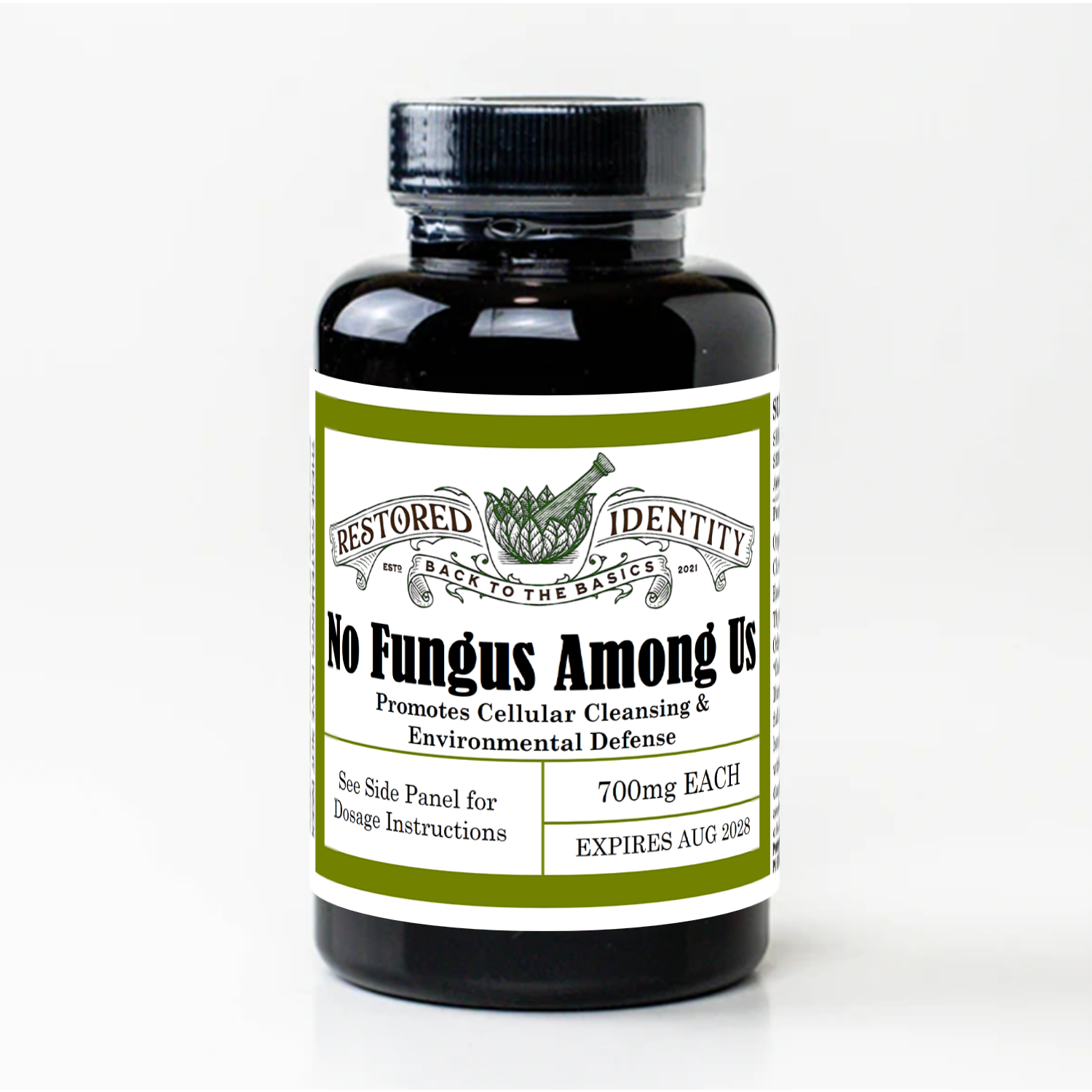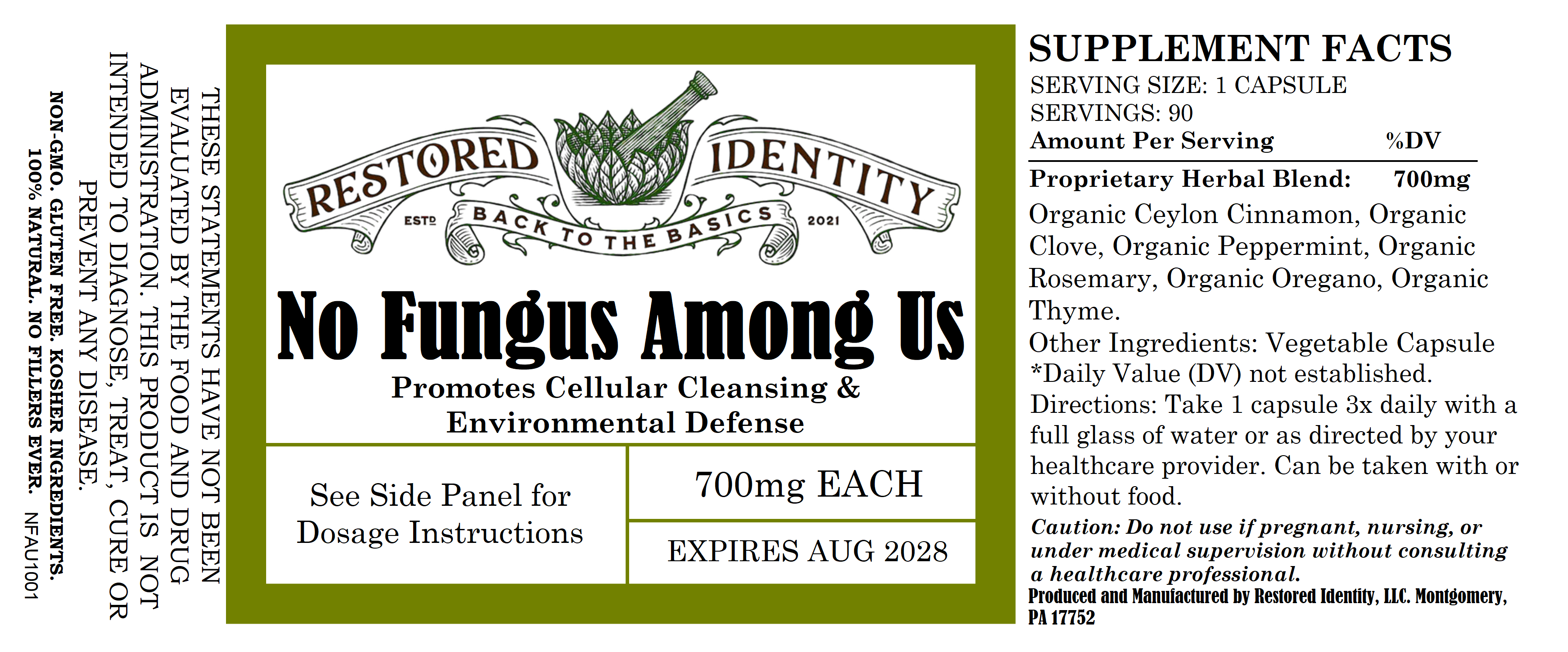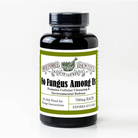No Fungus Among Us Capsules Only
Your body is constantly working to maintain balance — especially when it comes to the microorganisms that naturally exist within it. No Fungus Among Us is a thoughtfully formulated blend of organic herbs traditionally used to support a healthy internal environment, promote natural detoxification, and help the immune system stay strong.
This blend features Ceylon cinnamon, clove, peppermint, rosemary, oregano, and thyme — six time-honored botanicals known for their cleansing and balancing properties. Together, they offer gentle, natural support for your body’s microbial harmony and overall wellness.
Suggested Use
Take 1 capsule up to 3 times daily, with or without food.
For best results, use consistently as part of your daily wellness routine.
Each bottle contains 90 Kosher Vegan Capsules — a 30-day supply when taken as directed.
Supplement Facts
Serving Size: 1 Capsule
Servings Per Container: 90
| Amount Per Serving | %DV* |
|---|---|
| No Fungus Among Us Proprietary Herbal Blend – 700 mg | — |
| Organic Cinnamon Bark | |
| Organic Clove Bud | |
| Organic Peppermint Leaf | |
| Organic Rosemary Leaf | |
| Organic Oregano Leaf | |
| Organic Thyme Leaf |
Other Ingredients: Vegetable cellulose (capsule).
*Daily Value (DV) not established.
🌿 Key Ingredient Highlights
✨ Cinnamon Bark – A warming spice traditionally used to support digestion and internal balance.
🌸 Clove Bud – Naturally rich in eugenol, a compound known for its cleansing and purifying properties.
🌿 Peppermint Leaf – Provides a cooling, refreshing effect while supporting healthy digestion and microbial harmony.
🌱 Rosemary Leaf – A fragrant herb known for its antioxidant activity and overall wellness support.
🌾 Oregano Leaf – A traditional herb valued for promoting immune resilience and supporting a healthy internal environment.
🍃 Thyme Leaf – A time-honored botanical that supports respiratory and digestive wellness through its natural aromatic compounds.
✨ Why You’ll Love It
-
Promotes Internal Microbial Balance
-
Supports Immune & Digestive Health
-
Encourages Natural Cleansing & Detox Support
-
100% Natural • Vegan • Kosher • No Fillers or Additives
⚠️ Caution
Consult your healthcare provider before use if you are pregnant, nursing, taking medications, or under medical supervision.
Keep out of reach of children.
At Restored Identity, we believe the body was created with the wisdom to restore itself when given the right tools.
No Fungus Among Us is designed to support that natural process — promoting internal harmony and overall well-being through the power of God’s creation.
“Beloved, I pray that you may prosper in all things and be in health, just as your soul prospers.” — 3 John 1:2
Disclaimer
These statements have not been evaluated by the Food and Drug Administration.
This product is not intended to diagnose, treat, cure, or prevent any disease.
Disclaimer: These statements have not been evaluated by the Food and Drug Administration. This product is not intended to diagnose, treat, cure, or prevent any disease.





